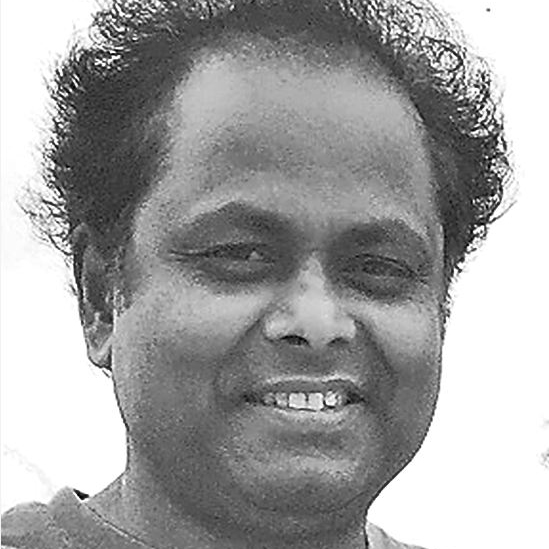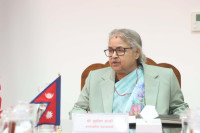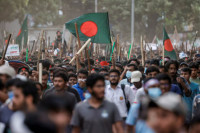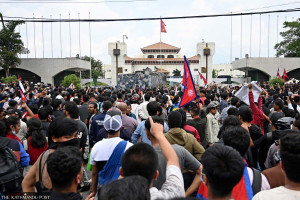Opinion
The Oli syndrome
It’s a tendency to disguise one’s group interest as nationalism and use external fears to weaken internal demands for justice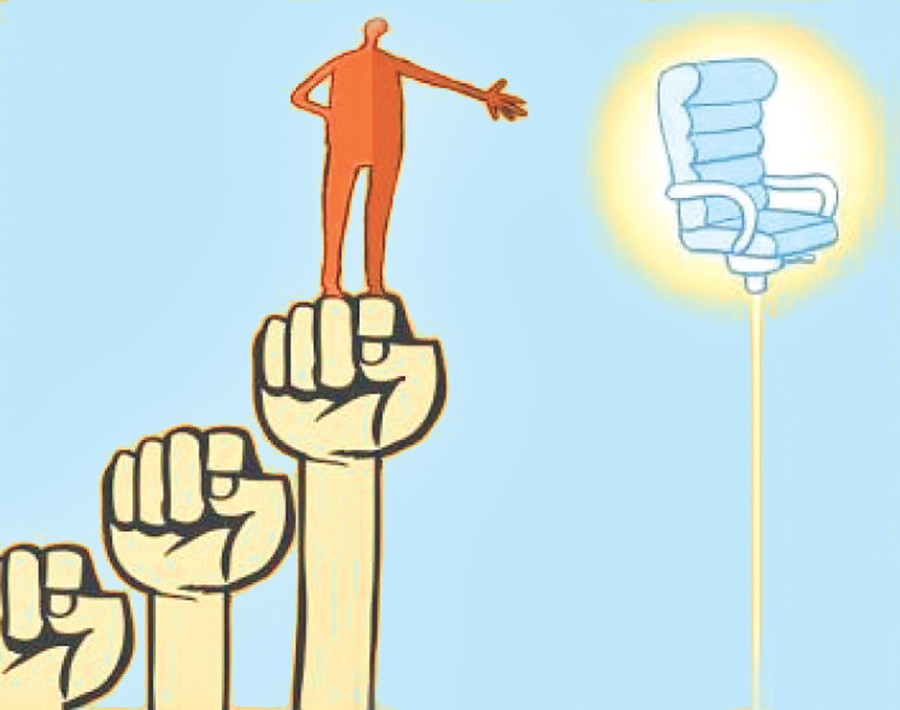
Pramod Mishra
As of this writing, a new political drama to choose yet another prime minister in the person of Pushpa Kamal Dahal, Prachanda is about to be enacted after KP Oli’s exit. The exit itself caused many self-assigned Nepali patriots much heartburn and indigestion and gave his detractors reason to open champagne. I have been one of his detractors since the days when he lost his party election for chairmanship to his rival Jhalanath Khanal and could not digest his defeat. At every step of Khanal’s work, both as a chairman and later as prime minister, Oli obstructed him by words and deeds. This had made me dislike Oli.
His words and deeds, and later news reports about his position on the epochal changes in Nepal—republicanism, federalism, secularism—confirmed the man’s verbal dexterity with his mother tongue but diabolical role in Nepali politics. But I feel no sense of celebration in Oli’s exit. The Madhesi and Janajati parties may have felt glee at his exit and expected some softening of the government’s hard line towards their demands. India may have felt a sense of relief, too. It may expect that Oli’s exit will lead to more flexibility in its relationship with Nepal. But the man’s exit will mean little if the Nepali state continues to suffer from the Oli syndrome.
Unbalanced nationalism
What is the Oli syndrome? First of all, this syndrome has long manifested itself as unbalanced nationalism, especially among Nepali speaking so-called high-caste Hindus. This unbalanced nationalism has both internal and external components. In the old lingo, the external unbalanced nationalism emerged as slogans against Indian expansionism and the US-led western imperialism. In the new form, the external component easily breaks to the surface as easy anti-India patriotism. Imperialism has shifted from capitalism to some Hindus’ fear of a western conspiracy to Christianise Nepal.
Now, mark the word ‘unbalanced’ in unbalanced nationalism. It is not that India from its British days to Modimania and Modiphobia has been free from blame. It is legitimate for Nepal to get pissed off at India when the latter tries to micromanage Nepali affairs, when it signs development projects and locks them into cold storage, when its amorphous officialdom does not know its left hand from right in its dealings with Nepal and, finally, when it does not wish to move with time and base its dealings with Nepal on principle and values rather than expediency. So, to secure sovereignty and independence and work for the national interest, the people of Nepal will always need reasoned, balanced and informed nationalism or patriotism. But when it manifests as unbalanced, it is nothing but Oli syndrome, a tendency to disguise one’s group interest as nationalism and deploy external fears to undermine internal demands for justice and equality of opportunity.
Its internal component, of course, consists of fear of those who do not belong to the hill so-called upper-caste Hindus. And this fear of power-sharing comes out both in words and deeds. You might recall Oli’s ethnically demeaning words against the Madhesis. And I’m sure Oli, like his fellow patriots who suffer from his syndrome, possesses and uses quite a few uncivilised ethnic epithets and slurs about the Janajatis and others as well. The use of ethnic slurs and demeaning words consists of another aspect of the Oli syndrome that many Nepalis suffer from. In deeds, it manifests as blind favouritism of one’s own and discrimination against others in career opportunities or areas where the state has any say.
Spreading its tentacles
Finally, the Oli syndrome manifests itself among Nepalis when they say and do anything and everything to advance personal ambitions, no matter the costs and the consequences. Oli’s careerism as it unfolded in recent years offers ample example of that. And one can find it working everywhere in Nepali politics. Most political leaders suffer from it. Political parties run themselves based on it. Sushil Koirala’s final run was a good example of it.
So, I was not too terribly elated at Oli’s exit because I believe that as long as Nepal’s ruling class—it could be one group today, another tomorrow—suffer from the Oli syndrome, Nepal has little hope of moving forward and achieving peace and prosperity.
Oli’s party men would naturally suffer from the Oli syndrome, but it is not confined to them only. The syndrome pervades in other parties, state organs—such as the bureaucracy, the security forces, the judiciary—and even in the media. Consider this excerpt from an op-ed that came out just a couple of days ago in a prominent Nepali daily, “These acts [of Oli] were anathema to those who are ready/determined to turn Nepali into Sikkim if possible, if not then Fiji, if not even that, then Bhutan, or in case even that is not possible, then turning Madhes into a Jaffna-like separatist battleground.” So, according to this writer, everyone who did not like Oli is ready and determined to liquidate Nepal as a sovereign state and only Oli and those who suffer from the Oli syndrome are the guardians of Nepal’s sovereignty and independence. And this op-ed gets published in the country’s leading newspaper without the author’s introduction, informing the reader that he is Oli’s political party operative.
Even the positive thing that Oli has done—his treaties with China—is fraught with diabolical consequences because it suffers from the Oli syndrome. Now, China is a rising world power with enormous economic potential. If India has exponentially increased its trade relationship with China, why cannot Nepal expand its economic relations with China given Nepal’s extreme poverty and enormous need for infrastructure development? But only a balanced approach can achieve a salutary result, not an act that suffers from the Oli syndrome.
So, Oli’s exit brought little joy to me personally despite my aversion to the man and his politics. As long as the Oli syndrome reigns, Nepal will have little respite from troubles.




 7.47°C Kathmandu
7.47°C Kathmandu